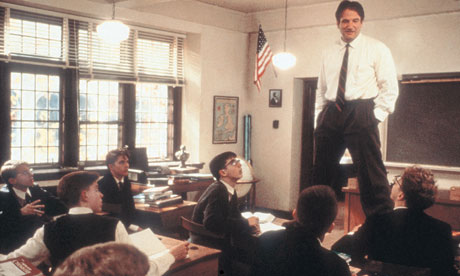
Confession time: I only play pick-up basketball in gyms where the average age of those playing is well above middle-aged. I tragically got cut from the JV team my sophomore year of high school, so being on the same court as my contemporaries brings back too many unwanted memories. This preference rules out playing pick-up at my college gym. My only refuge for my ideal, quasi-geriatric hoop scene is the local YMCA where I grew up.
This particular basketball court is the mecca of mediocre basketball and varying life advice. Because a young buck like me is such a rarity there, the aging regulars love to give me all sorts of unsolicited advice. “Charlie, always remember: no wife…happy life,” one gray-haired friend told me. A younger guy, this one solidly in his forties, quickly interrupted him–“You’ve got it wrong. It’s happy wife…happy life.”
The piece of advice that I remember most fondly came from Ronnie, one of the oldest regulars, and someone whom I have always liked. He once told me in his cool Brooklyn accent, “If you do what you love, you’ll never work a day in your life.”

His counsel came at the perfect time. I was just a couple of weeks from going away to college, and I was beginning to think of what I should study. The dilemma was clear to me before stepping on campus: would I study something that I loved—history, literature—over something I didn’t even like—business, economics—or would the latter make me too “employable” I couldn’t pass it up?
Ronnie’s words were comforting. It wasn’t quite “Cast all your anxiety on him because he cares for you” (1 Peter 5:7), but it sure sounded like it. I felt like this was gracious advice: Keep doing what you are passionate about, and you’ll have no worries.
It didn’t take long before someone else weighed in on the matter. My English professor in my first semester freshman year of college suggested our class read his published piece on the value of a liberal arts education.
Mark Edmundson bravely points out how professors and students at today’s universities view education as a means to an end: professors use their positions to get tenured, and students graduate to get high-paying jobs. He encourages students to fight for education for its own sake, to read from the best writers so as to better understand themselves.
Then, he takes a stance on the whole “do what you love” idea:
“Having found what’s best for you to do, you may be surprised how far you rise, how prosperous, even against your own projections, you become. The student who eschews medical school to follow his gift for teaching small children spends his twenties in low-paying but pleasurable and soul-rewarding toil…He’s always behind on his student-loan payments…He buys shirts from the Salvation Army, has intermittent Internet, and vacations where he can. But lo—he has a gift for teaching…”
“He also likes staying around and showing up at school and figuring out how to get this or that little runny-nosed specimen to begin learning how to read. These are the kinds of problems that are worth having and if you advance, as Thoreau said, in the general direction of your dreams, you may have them. If you advance in the direction of someone else’s dreams—if you want to live someone else’s life rather than yours—then get a TV for every room, buy yourself a lifetime supply of your favorite quaff, crank up the porn channel, and groove away. But when we expend our energies in rightful ways, Robert Frost observed, we stay whole and vigorous and we don’t weary.”
Edmundson paints a harsh picture: follow what you love and live a “rightful” and “whole” way, or live someone else’s dreams (e.g. medical school), and find yourself alone in a big house wallowing in your own vacuity.
This picture colored the way I thought about what Ronnie had told me. Ronnie’s catchy mantra no longer seemed gracious; instead, the “if” seemed too big to handle. What if I didn’t do what I loved? Would I end up soul-sucked like Edmundson suggests?

Since I read that article for the first time a year and a half ago, I’ve talked to many people who would be the first to admit they “do what they love”. My eyes have been opened to the incredible amounts of anxiety that come along with this self-title.
Imagine you are the teacher Edmundson describes. How discouraging would it be if the kids just won’t learn? Let’s say the principal gives you a poor performance review – “I’ve sacrificed a good income for this?” Just as, say, an accountant is perpetually anxious about whether what he or she does has any meaning at all, so too does the teacher feel anxiety to constantly extract meaning from his or her work.
Whichever way I choose—loving what I do or not so much—it seems naïve to think that the two lives are so diametrically opposed, that “doing what you love” is an elixir for life’s inevitable anxiety. Jesus is in both ways (John 14:4), and so, too, will be my anxiety.

COMMENTS
One response to “The “Doing What You Love” Elixir”
Leave a Reply













Great thoughts Chuck. Definitely a topic that’s been on my mind as I enter my last year of college. I think that “loving what you do” is important, but as you suggest, can be an anxiety trap. Even though they both bring up good points, no choice, career or otherwise, is as simple as your English professor or bball compañero made it out to be. I think the ultimate comfort for choices like what you study or what you do for work is resting in the reality of God’s grace and plan for your life.